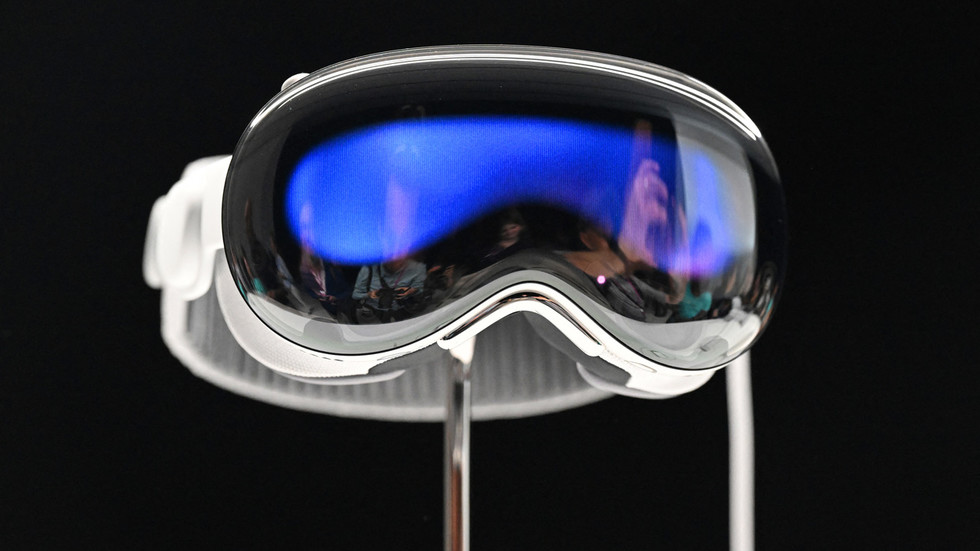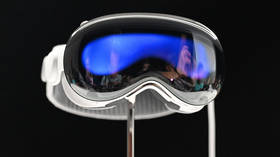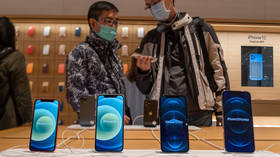
The US tech giant’s hopes of shipping 1 million units of Vision Pro in 2024 have been shattered, the paper reports

Apple’s Vision Pro virtual reality headset is displayed during Apple’s Worldwide Developers Conference (WWDC). © AFP / Josh Edelson
Apple has been forced to sharply reduce the production forecast for its newly-unveiled mixed-reality Vision Pro headset due to manufacturing problems, the Financial Times has reported.
The Cupertino-based company’s initial internal target was to sell 1 million gadgets in the first 12 months after the arrival of the Vision Pro on the market sometime in early 2024, the paper said in an article published on Monday.
However, according to FT, multiple people with direct knowledge of the manufacturing process now say that Apple won’t be able to produce nearly enough devices to meet that goal.
Chinese firm Luxshare, which the sources described as Apple’s only assembler of the headset, was preparing to put together less than 400,000 units next year, the paper said.
Two China-based sole suppliers of specific components for the Vision Pro also claimed the US tech giant had requested parts that would enable it to make 130,000 to 150,000 gadgets in 2024, it added.

Read more
“Both projections imply a significant cut to production” of the much-hyped headset next year, the article pointed out.
The complexity of the Vision Pro and production issues also mean that plans for a more affordable version of the gadget have also been pushed back, the sources said.
The Vision Pro, which was unveiled a month ago after seven years of development, is going to be priced at $3,500, according to Apple. The headset is described as a “spatial computer” that integrates the real world with digital media and is operated through motion gestures, eye tracking and voice input. The device is the company’s first attempt to launch a product in a new category since Apple Watch in 2015.
FT’s interlocutors said that the Vision Pro’s sleek screen, which consists of two micro-OLED displays and an outward-facing curved “lenticular” lens, became a major challenge for the manufacturers.
READ MORE: iPhone prices tumbling in Russia
Apple has been unhappy about the productivity of the suppliers of the micro-OLED displays, which are believed to be the most expensive component of the headset, the sources revealed.




